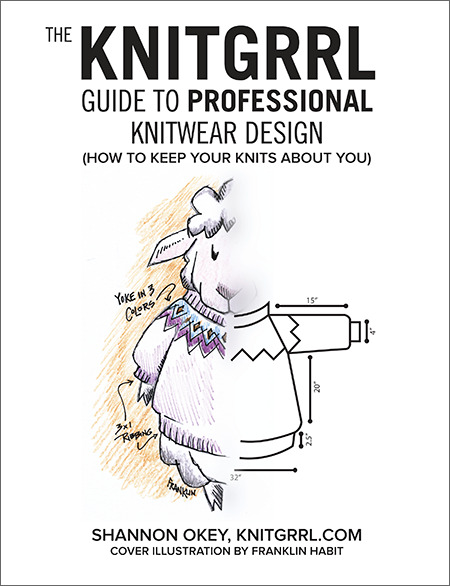This is the first of what I hope will become a regular-ish feature: an interview with someone crafting a business. Part friendly chat, part case-study, all helpfulness! If you know someone I should interview (even you!) let me know.
I am super excited to share a look into how Heidi Fischbach of Heidi's Table and Aardvark Essentials crafts her business. She is a massage therapist, a potion-maker and a delightful writer. We talk a bit about the elusive “multiple streams of income” and speaking to your Right People, even when it's scary.
First, you work with an aardvark. Can you please explain?
The aardvark wasn't in the plans. Actually, there weren't ever big plans, just an idea that turned me on and then doing the next thing. I didn't even know, really, what an aardvark looked like. But I must have known someplace in my subconscious because there one was, one night, in my dream, tagging along beside me, and then, after I tried to give him the slip–I had much more important things to focus on thank you very much–he jumped up and bit my hand, all, don't you be ignoring me, missy!
He appeared in my dream when I'd been experimenting with my lotions and potions over a couple months, and the initial excitement had worn off. I was discouraged and feeling alone with my idea, thinking I might just scrap the whole thing. But he, this aardvark, would not let me.
He bit me so hard in the dream that it woke me up. In the morning I became curious about aardvarks and found out many things, including how they have all these qualities I'd been trying to nurture in myself or that simply were vital to my idea.
For one, they have a super thick skin. How thick? Well, they can stick their tongue into a nest of termites or red ants and feed, impervious to the insects' stings. I wanted to develop a thicker skin so that I'd do what I wanted to already and quit worrying about what people thought of me.
For two, they have a very keen sense of smell. In my business I'd learn to trust my keen sense of smell: knowing when a potion I'm working on is done, or when it needs a little more of this or that.
And three, aardvarks are native to Africa, which is where the Shea tree, from which the seeds are harvested for shea butter, grows. Shea butter is a key ingredient in the creams I make.
Your business is fascinating because it includes several aspects of you in a cohesive whole. Did you decide to branch out like this on purpose? Or did it happen by chance?
It wasn't so much a conscious decision, as the fact that I am someone who loves to have multiple streams, period. I love being stimulated by new ideas, new places, new ways of seeing things. I stagnate a bit if I'm sitting on my butt doing the same thing over and over day in and day out.
Also, massage therapy is a profession that tends to see its therapists burn out rather quickly. I read and observed this trend, and noticed that it seemed to apply mainly to therapists practicing what their employers defined as full time, employers who probably weren't themselves bodyworkers, who didn't know the energy, the love, the passion and the in-between-clients-schlepping and footwork that our work involves…
I did not ever want to see just another body on my table, which is what happens to me if I see too many people in a day. Rather, I want to approach each client from a curious and open place, ready to listen for their you-ness, and to have my senses finely tuned to the unique way in which their body is expressing the stuff of their life, including all its pain, discomfort, and stuckness. I knew that if I saw 5 or 6 people a day, 5 days a week I'd become a machine, and, a quickly expiring one at that.
Mixing potions started when I decided to make my own massage cream. The woman that had been making them for me moved away and I really didn't want to go back to the commercial, mass-produced, full of preservatives, stuff. I love the idea of knowing exactly what is in and where what I put on my body, or on my client's, comes from. Calling them “potions” is my way of honoring the emotional and energetic component of the tension in our bodies, without getting all preachy-teachy and long-scientific-wordy. I get to be playful and leave lots of room for magic, which is what I call the mysterious, I-have-no-idea-how-it-really-works-but-it-does quality of potions.
Writing hasn't provided me too much income, per se. However, I do write my own webcopy so in that way it is an indirect stream. Writing about the potion-characters is probably my favorite part of my Aardvark Essentials business . That and creating/concocting the potions. The day may come when someone else mixes the creams, packages and ships the boxes, and takes care of all the technological backend of my business (oh please may that day come soon!), but the writing and the potion-creating? I don't see handing those over to anyone anytime soon. I have far too much fun with those.
Do the various aspects enhance each other, while you work? Or do you feel like you're spread thin to keep them all in the air?
They do enhance one another, and I also sometimes feel spread too thin.
It's a tricky balance and being mindful of it continues to be a challenge. It, my business and balancing things, is one of my greatest teachers and my body lets me know when things are out of whack. If I'd known the amount of time and effort and middle-of-the-night thinking (er, worrying) that starting and running a business would involve, I don't know if I'd have done it. But, here I am. It happens, one little movement at a time, and at some point you notice that all the huge things are but a string of one-little-movements, right?
It is also crucial to have people you love and trust cheering you on, at hand when you freak out. They believe in you and your baby-idea even when you say it's crap because it's 2 in the morning and you got a weird order of shea butter from your supplier, and it's Christmas, and you just launched, and how in the world are you ever going to fill all your brand new orders and make shea butter souffle from that! Yeah, I could not do any of this alone, even though at the end of the day it is me and me. And the aardvark, of course! (He is the calm, by the way. The matter o' fact voice of, “now we do this, Heidi.” And too, he delivers potions to our people. OK, via USPS, but still. I like to picture him all decked out and channeling Snoopy in goggles in a little propeller plane, flying around the world to drop off people's orders.)
Your entire site (everything you do!) speaks so clearly with YOUR voice and your writing is utterly delicious. Does this come naturally or has this been a challenge?
Trying to change myself into what I think people want and then writing from that place is energy-crushing. Not to say it's always easy, but writing in my own voice is actually much more filled with ease than bending, pushing, pulling and second guessing myself to fit into a dress that is too small. Besides, I probably don't even like that dress called “other approval” anyway, you know? If I am writing the way I think you will like me to sound, about the things I think the market or you or Aunt Mildred or whoever thinks are cool or acceptable, and what I'm writing is not really me, then I might as well go back to 9 – 5 jobs I didn't love, writing for other people about stuff that mattered to them.
In my own reading, I love getting a sense of the writer and who s/he is. That's when I feel a connection, and for me, everything pretty much always boils down to connection. What connects me to myself? What connects me to you? What connects me to this our amazing world? I notice that impersonal and technical language makes my eyes glaze over… hunh? wha–? Technical jargon and fancy for the sake of fancy, leaves me feeling far away from whatever it is I'm reading.
Plus, if I were to write just what I think people want to hear, in a voice I am bending to be what I think they will approve, in the end, who is it they like? Not me, that's for sure. The irony is that if I'm writing from my me-ness, I am much more likely to please and connect with my “right people.” You know?
I may be making this sound easier than it is. Often I still care a whole lot about what people will think. One difference is that I tend to notice much sooner than I used to. And once I've noticed, then I can be with that part of me. She's usually young, and she tends to feel alone. It is for me to take care of her, not you, not my readers. There must be something she needs, even if nothing more than my company. It comes back to connection, again.
Oh, I love how you put that…being with the part of you that is uncomfortable and then figuring out what she needs. That seems like an ultra-important step in the sometimes scary process of connecting with your Right People.
Do you have any tricks or tips for tapping into that YOU-ness before you write something business-y? In the hard (practical) OR soft (inner work)?
In “the soft” , I notice the place from which I'm writing. Am I feeling insecure, wanting people to pat me on the back or validate me? If so, there is stuff inside me that needs my presence and attention before I publish that thing. I probably need to attend to myself and some unmet needs, so that I don't end up putting them onto my readers.
In “the hard” (meaning practical, actionable, maybe physical steps… more concrete) I might put on some of my potions. Maybe Night Queen, for confident passion. Or Sassypants, to say it like it is. Or I take care of the animal me. By that I mean my physical body, which I've grown to appreciate immensely for its wisdom and straightforwardness. My physical body needs movement. She needs fresh air. She needs food. She needs a lovely environment. And she lets me know, in various ways–discomforts get my attention the quickest–when I'm not taking care of myself well.
When I'm writing a “sales page” for, say, one of my potions, I don't think of it as writing a sales page. Ugh! Or, yawn! I think of it as writing an “About Me” or a bio page for her, or him. And yes, I think of my potions as characters with qualities I want more of. Who is this potion, I might ask myself? What was the hard thing going on for me that inspired her creation? And then I tell the story. My “right people” can relate. There's a way it feels like their story too. Who doesn't “lose it” at times? Who doesn't bite their tongue and worry about what others think? Who doesn't get exhausted? And if they relate and like the story, maybe they'll want to meet my potion characters in person!
Havi Brooks taught me so much about this whole matter of starting and running a business. From her learned that I don't ever have to write a “sales page.” And to step back and identify what I love and what works for me. And to call what I do whatever the heck I want.
Sidenote from Tara: yes! Totally call it what you want! I brunch (instead of launch) and I bake (instead of writing a sales page)
Thanks so much for agreeing to do this! I've loved getting a glimpse into how you work!
Thank YOU, Tara. I love doing this! It helps me understand my business and myself better. And, I'm super excited to connect with your people. I do believe I adore them already.
My favorite bits of Heidi-wisdom?
- “I want to approach each client from a curious and open place, ready to listen for their you-ness”
- “If I'd known the amount of time and effort and middle-of-the-night thinking (er, worrying) that starting and running a business would involve, I don't know if I'd have done it. But, here I am. It happens, one little movement at a time, and at some point you notice that all the huge things are but a string of one-little-movements, right?”
- “Writing in my own voice is actually much more filled with ease than bending, pushing, pulling and second guessing myself to fit into a dress that is too small.”
What did you learn? What was your favorite bit? Share it in the comments!
 This class would normally be $30.
This class would normally be $30.

